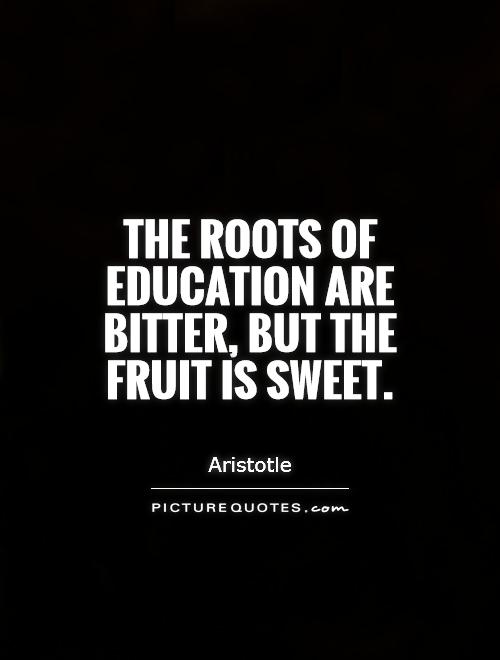The roots of education are bitter, but the fruit is sweet

The roots of education are bitter, but the fruit is sweet
Aristotle, one of the greatest philosophers in history, once said, "The roots of education are bitter, but the fruit is sweet." This profound statement encapsulates the essence of the learning process and the rewards that come with it. In the context of Aristotle's philosophy, this quote can be interpreted in various ways.Firstly, Aristotle believed that education was a lifelong journey that required dedication, hard work, and perseverance. The "roots" of education refer to the foundational knowledge and skills that one must acquire in order to truly understand a subject. This initial stage of learning can be challenging and demanding, as it often involves grappling with complex concepts and ideas. However, Aristotle believed that this struggle was necessary in order to develop a deep understanding of the world and one's place in it.
As one progresses through their education, they begin to see the "fruit" of their labor. This refers to the rewards and benefits that come from acquiring knowledge and wisdom. Aristotle believed that education was not just about memorizing facts and figures, but about cultivating a deeper understanding of the world and oneself. The "sweet" fruit of education is the ability to think critically, make informed decisions, and lead a fulfilling life.
Furthermore, Aristotle believed that education was essential for personal growth and self-improvement. He saw learning as a means of developing one's virtues and character, and believed that education was the key to living a virtuous and fulfilling life. The "bitter" roots of education, therefore, represent the challenges and struggles that one must overcome in order to become a better person.












 Friendship Quotes
Friendship Quotes Love Quotes
Love Quotes Life Quotes
Life Quotes Funny Quotes
Funny Quotes Motivational Quotes
Motivational Quotes Inspirational Quotes
Inspirational Quotes